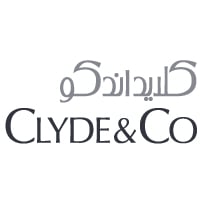

Legal manager - Saudi Arabia, Jordan, Lebanon, Iraq and Palestine | KPMG Professional Services – KPMG



Amr Abdelrahim
Legal manager - Saudi Arabia, Jordan, Lebanon, Iraq and Palestine | KPMG Professional Services – KPMG
Team size: 7
What are the most significant cases and/or transactions that you have been involved in over the past year?
I had the privilege of playing a pivotal role from a legal standpoint in the landmark integration transaction between KPMG’s two largest member firms in the Middle East. This strategic merger involved the Saudi Levant and Lower Gulf firms, which have united to create a formidable regional presence comprising over 5,000 employees across six countries. This integration aligns with KPMG’s Global Collective Strategy, which advocates for the clustering of member firms across the network to foster greater synergy and efficiency.
My contribution to this significant transaction involved providing comprehensive legal guidance to key stakeholders across the firm, particularly focusing on the KSA legal workstream. This encompassed orchestrating shareholder voting, facilitating the necessary legal contractual arrangements, and collaborating with all relevant parties to secure the requisite regulatory approvals. The transaction is a milestone, centralising processes and streamlining efforts to deliver high-quality services to our clients throughout the region, while also enabling us to explore new business opportunities and industries.
Navigating the complexities of this transaction from the perspective of Saudi law was both challenging and rewarding. It required an in-depth understanding of the relevant laws and regulations impacting our professional services industry, as well as close collaboration with colleagues and stakeholders across the firm to ensure compliance with regulatory requirements.
Managing such a multifaceted transaction was undoubtedly demanding, but it was an honor and a privilege to support my firm through this process. Being entrusted as a trusted advisor on this transaction is a testament to the trust placed in my expertise, and it is an accomplishment I hold in high regard.
What innovations have you made to the way your legal team works in the past year?
Over the past year, I have spearheaded the development of an innovative legal corporate platform designed to enhance collaboration and support among our legal colleagues across the Middle East. This platform serves as a centralised repository where team members can access and manage their legal corporate projects seamlessly.
By implementing this platform, we have fostered a more collaborative work environment, allowing team members to actively select projects that align with their interests and expertise. This not only encourages greater engagement but also empowers individuals to contribute more meaningfully to our collective success.
Moreover, the platform provides leadership with valuable insights into the team’s workload and project occupancy, enabling more efficient resource allocation and strategic planning. This initiative represents a significant step forward in optimizing our legal team’s operations and enhancing overall productivity.
What do you think are the key things to remember to motivate and manage the other members of your legal team?
I believe that successful motivation and management of a legal team require a careful blend of communication, empowerment, and recognition.
Firstly, fostering an environment of open dialogue is crucial. Encouraging team members to share their insights and express concerns nurtures a sense of belonging and investment in the firm’s collective goals. This openness not only builds trust but also ensures that all voices are heard, contributing to a more inclusive and engaged team dynamic.
Secondly, empowerment through strategic delegation is also essential. By entrusting individuals with responsibilities, you instill confidence and allow them to take ownership of their work, which in turn enhances their commitment to the team’s success.
Empowerment leads to a more proactive and innovative team, as members feel valued and competent.
Lastly, recognising and celebrating achievements, whether large or small, reinforces a positive culture and motivates members to strive for excellence. Timely acknowledgment of contributions fosters a supportive environment where collaboration, shared vision, and mutual respect thrive.
Are the effects of AI on the legal world overplayed, or underplayed?
While artificial intelligence is undeniably reshaping the legal landscape by enhancing efficiency and streamlining tasks like document review and predictive analytics, the indispensable role of human attorneys remains paramount. Al tools, despite their advanced capabilities, cannot replicate the nuanced judgment, ethical considerations, and deep insights that human legal professionals bring to the table.
The intricacies of legal interpretation require a level of understanding and empathy that Al cannot provide. Human attorneys possess the ability to navigate complex legal matters with a sensitivity to context and ethical implications, ensuring that justice is served in a manner that aligns with societal values and legal standards.
Furthermore, the ethical frameworks and moral judgments that underpin legal practice are inherently human attributes. Attorneys contribute critical insights and make decisions that reflect a comprehensive understanding of both the letter and spirit of the law.
In essence, while Al serves as a powerful tool to augment the legal profession, it cannot replace the expertise, ethical judgment, and human touch that attorneys provide. It is the synergy between Al’s capabilities and human insight that will truly enhance the legal field, ensuring that technology complements the profound work that human attorneys do every day.
Legal manager | KPMG Professional Services
Legal manager | KPMG Professional Services – KPMG
Legal manager - KPMG Saudi Arabia, Jordan, Lebanon, Iraq and Palestine | KPMG Professional Services